Bularda este un sat din cadrul comunei Dereneu, raionul Călăraşi. Satul Bularda se află la distanţa de 34 km de orașul Călăraşi și la 85 km de Chișinău. Conform datelor recensămîntului din anul 2004, populaţia satului constituia 149 de oameni. Localitatea este menționată documentar în anul 1620.
Read more-
We are the Moldavians
- Introduction
- The Moldavian ethnogenesis
- Dictionary
- About the Moldavian language
- The Moldavian Nation
- About the role of Moldavians in the foundation of Romania
- On the role of the moldavian culture in the formation of Romanian culture
- Why are we not Romanian?
- Significant personalities of Moldova
- Encyclopedia of Moldova from А-Z
Calendar of events
Latin and Slavic elements
In the Moldavian language the word stock common to the Latin was and still remains the basic and the most significant both in the quantitative and qualitative sense. The major part of words in this stock has the generalities in phonetics, grammar and lexis.
The words common to Latin ones, lexemes with Thracian-Getae-Dacian roots, which differ from the Latin, together with the borrowed elements compose the basic word stock of the Moldavian language.
Pronouns and the majority of verbs in the Moldavian and Latin languages are also similar.
The words of the basic word stock in the Moldavian language which are similar to the Latin ones denote important, everyday, essential concepts, actions, things. This is the reason for high frequency of these lexical units in a spoken, literal Moldavian national language.
Apparently, to the moment of forming the literal Moldavian language, the part (the lesser) of words was loaned from Latin, as it was the kindred and more developed language. However, it should be pointed out that many words in the Indo-European languages have the common linguistic substratum and the existed theories about the primacy of some Indo-European languages in relation to others are based on the quite perfunctory foundation and sometimes rest upon the political interests of the customers of linguistic studies.
The important factor which ascertained, imparted specifics and originality to the type of speech of the population of the Carpathian-Dnistrovskiy area, are the words common to Slavic.
In the Moldavian language several lexical layers common to Slavic are distinguished. The most ancient relates to the time of Indo-European community and contacts between Thracian, Proto-Slavic and Early Slavs. Another layer consists of the loanwords typical for other languages as well: babe, kolak, nevaste, koase, rane, gol, slab, deruesk, mile etc.
Summarizing and generalizing the abovementioned proofs about the common with the Slavic language word stock of Moldavian-Romanian language, one can notice that there are three categories of words:
1.The words related to the ancient period, to the times of Indo-European contacts between Thracians, Proto-Slavic and Early Slavs;
2.The Early Slavic words – Bulgarian and Serbian loanwords;
3.Eastern Slavic words typical only to the Moldavian language, the loanwords which individualize, point it out, specify it, give it originality and charm: “dulchele gray moldovenesk” – mellifluous Moldavian speech.
The Slavic words bich, boale, boer, bolnav, glume, klae, kirme, kolts, pagube etc. are used not only in Moldavian but in the Valachian/Romanian language as well.
The same can be said about the following words: akhote, baler(ke), bolnitse, borona, borta (Ukr. board), bukhay, a dubi, a gili (Ukr. biliti), kalyaske, kartuz, koromisle, kor, kochorve, leike, lozie, skripke, strune, khorn, khrube, toloake, kharbuz, khryapke, khulub, chubote etc., which provide the Moldavian language with the special typical characteristics.
The loanwords from the Polish language are the result of cultural and political relations, the process which was studied by the Moldavian scientists in details. Even D. Cantemir pointed out the following (in the Description of Moldova): “Those who live by the Dnestr River use many Polish words and especially naming many kitchen utensils”.
Nowadays, according to academician N. Corlateanu, “it is possible to assess more than 350 Polish words which are used especially by Moldavian chroniclers: okop, rotmiru, podzyag, khatman, zhoimir, khashke, pantsir, skizhe, palanke, kherb, shlyakhte, motspan, zlot, potronil, taler etc.”
As the differentiating elements one can point toponyms in the Eastern Slavic phonetic form as well: Khorodka, Khorodishte, Solonets, Solotvino and others, and Kolinkuets’, Dubeuts’, Vanchikeuts, Tereseuts’ and others.
The Moldavian dialects of Dnestr Left-Bank area, which preserved the unique words and new forms, especially individualize the Moldavian language.
The Moldavian dialects of Dnestr’ Left-Bank preserved the words which can be fully related to the Proto-Latin: anine < lat. Arena “sand”, morve < lat. morus «mulberry». There are Early Moldavian forms which are little known in Romania: дулаукэ “bitch”, tulpan “thick shawl”, gelyate “bucket”, mineshtergure “towel”, kitoroage “jellied minced meat” and others.
The abovementioned conclusions and summaries confirm the peculiarities of the Moldavian language, its unitary character in space and time: since the Dark Age till nowadays, from Kodimi (Left-bank of Dnestr) to the North of Transylvania.
Thus, one of the native peculiarity of the Moldavian society is the fact that along with the priceless, unique cultural heritage of material and spiritual culture, it created the amazing affluent in its vocabulary and artistic phonetic-stylistic diversity Moldavian language. Its traditions are so profound that the Moldavian people managed to preserve till the XX century and still use, especially in the art style texts, their national menology – public national months’ names which were firstly recorded by V. Aleksandry and were used in the works of Moldavian writers and folklorists, such as P. Ispiresku, M. Sadivyan, V. Aleksandry as well as by modern authors.
© Moldovenii.md all rights reserved.
Is forbidden to copy the materials without the owner’s consent.
The information published on the site can be taken only by indicating the source www.moldovenii.md .
If you have any questions please contact us by email: support@moldovenii.md
www.moldovenii.md does not support and does not promote any of the political parties.

 12
12 
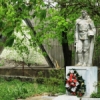
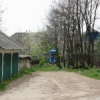
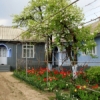
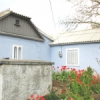
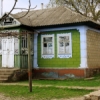
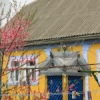

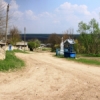
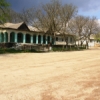











 My playlists
My playlists